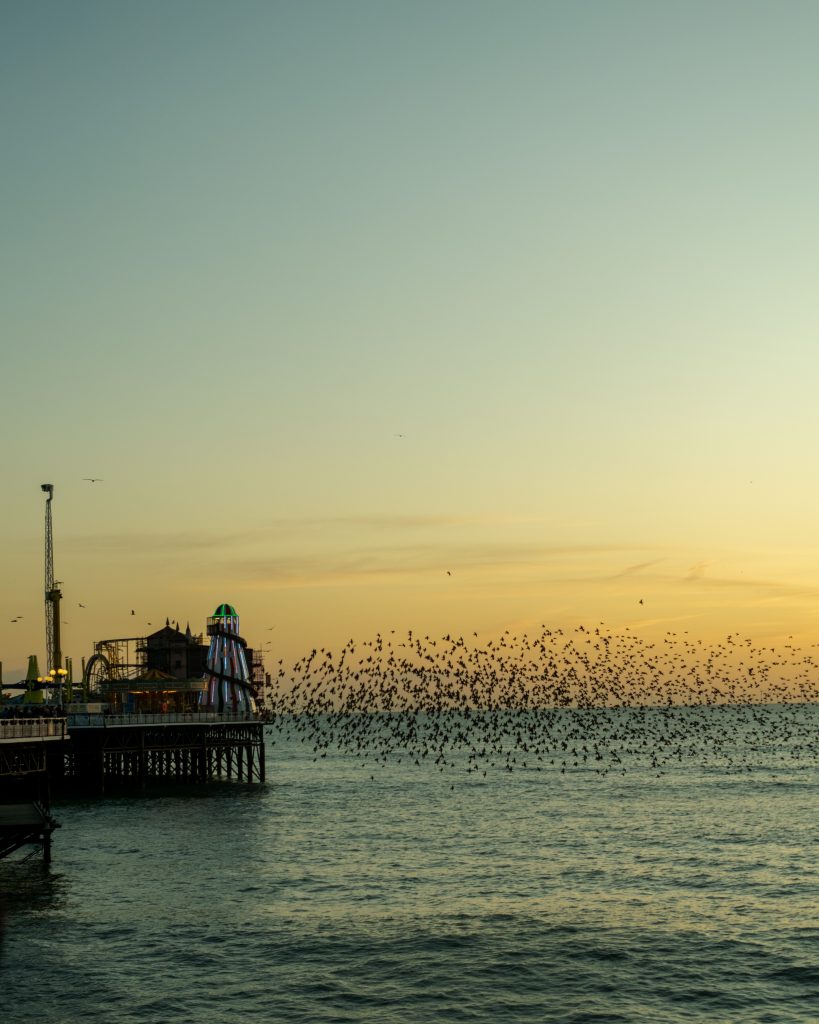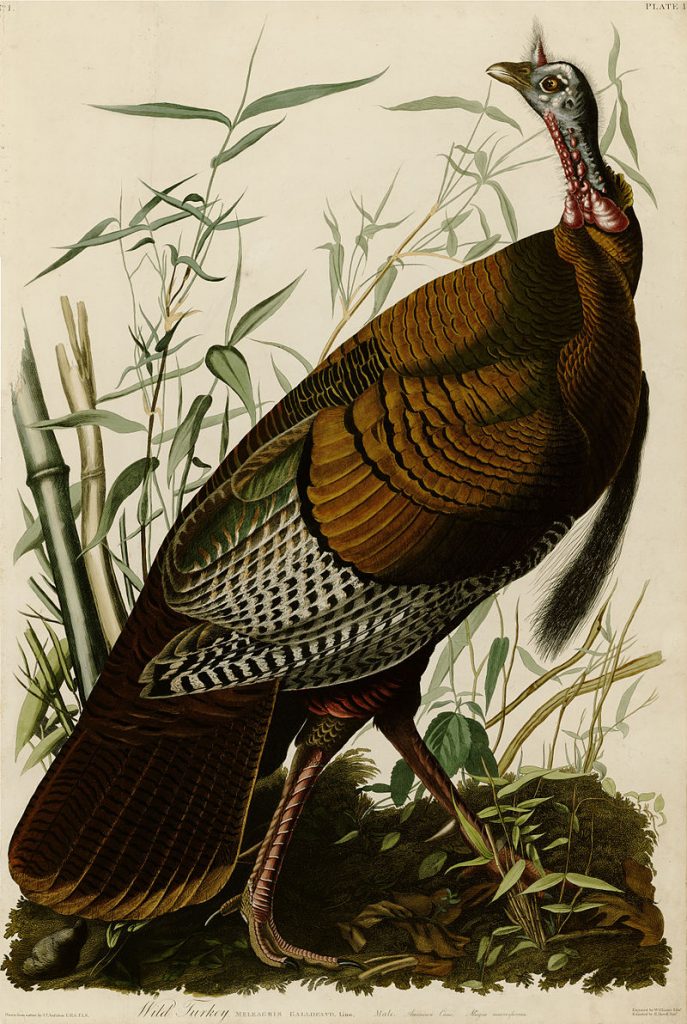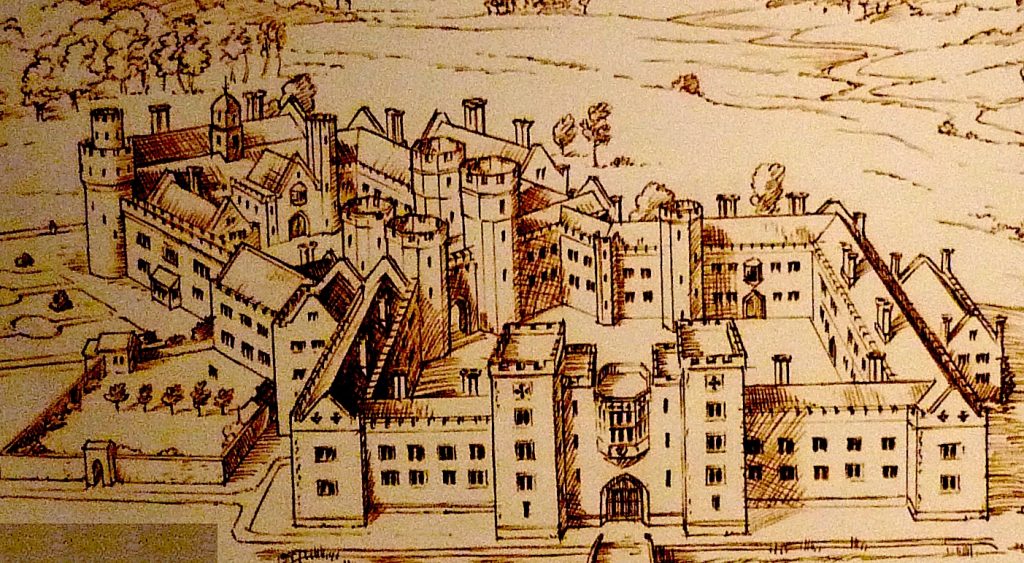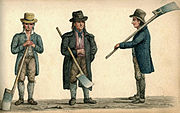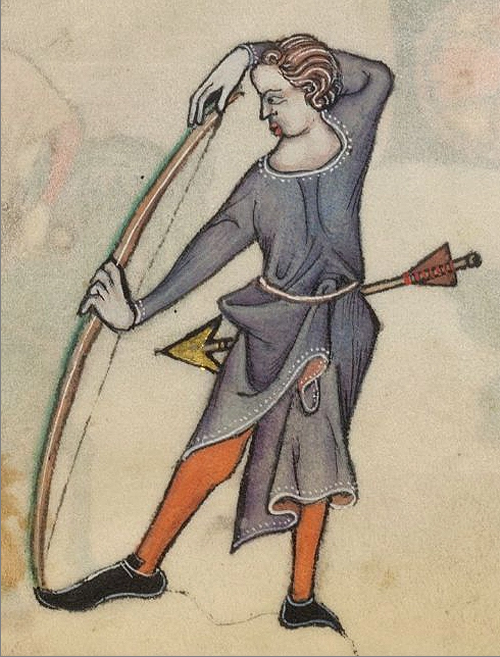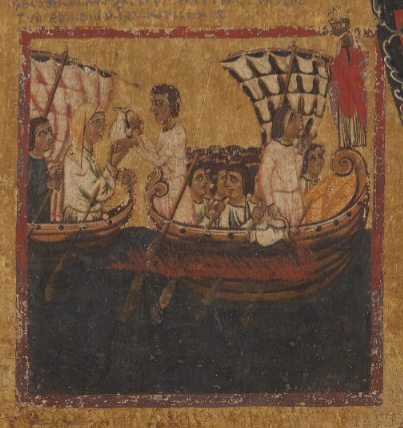
Santa Klaus was, originally a 4th Century Bishop from Asia Minor who saved three girls from prostitution by throwing golden balls through their window enabling them to marry with a good dowry. He, also, saved three boys from beheading. So he became the patron saint of children. He died on the 6th of December in Myra, present day Turkey. From the moment of his internment his tomb flowed with the myrrh. In 1087, the Normans from Apulia raided Myra, then under the control of the Seljuk Turks, with a gang of 67 men and stole his remains, to bring them to Bari, in Southern Italy. Before his arrival there were 6 churches dedicated to St Nicolas in Bari. In 1969, Pop Paul VI revoked his Feast Day as he decided ther was no evidence St Nicholas was a real person.
Representation of the balls can still be seen on pawnbroker’s shop, and the gifts Nicholas gave led to the exchange of gifts to honour him. They were originally given on December 6th, his feast day. The tradition of Santa Klaus was taken by the Dutch to the United States and mixed with other traditions, including the English Father Christmas, to create our modern spirit of Christmas.
Boy Bishops

https://commons.wikimedia.org/w/index.php?curid=6709993
The idea of Boy Bishops may come from a tradition established by Saturnalia. This was the festival, in the Roman world, when servants exchanged duties with masters and mistresses. The medieval Christmas was ruled over not only by the Lord of Misrule but also by Boy Bishops. It was a tradition that was attacked in some quarters but defended by others on the basis of the humanity of the custom, the empathy it engendred and the fun it could instigate.
They were elected on December 6th (Childermass) It was stopped by Henry VIII, although later revived and practised to this day in the Cathedrals of Hereford and Salisbury. The Boy Bishops wears full ceremonial gear and takes part in ceremonies and services for three weeks.
There are also medieval records that speak of the custom:
“two children’s copes, also a myter of cloth of gold set with stones.”
St. Mary-at-Hill, London Church Accounts
1549 “For 12 oz. silver, being clasps of books and the bishop’s mitre,
Westminster Abbey, St Pauls & St Nicholas Cole Abbey London inventories
“The vj myter of Seynt Nycholas bysshoppe, the grounde therof of whyte sylk,
garnysshed complete with ffloures, gret and small, of sylver and gylte, and stones
Also records at St Pauls record: una mitra alba cum flosculis breudatis ad opus episcopi parvulorum baculus ad usum episcopi parvulorum;’
St Nicholas Cole Abbey in the City of London,
This Church to St Nicholas is first mentioned in the 12th Century and was never an Abbey. The Cole part of the name is thought to refer to a ‘Coldharbour’ which was a traveller’s or poor persons shelter from the cold.
There is an inventory dating to the Reformation that records vestments for children at St Nicholas. The Church was rebuilt by Christopher Wren after the Great Fire, and is, possibly, the location where Trotty Veck stands awaiting employment as a messenger or runner, in Dickens’s second greatest Christmas Book after the Christmas Carol. The story is more a New Year story than a Christmas story.
For more on boy bishops look at this, and look at this 1935 film about Boy ~Bishops in Compton, Guildford.
The Lord of Misrule.
Middle Temple, like the other Inns of Court in London also had a Winter period of f ‘condoned disorder. This continued through to Christmas and beyond to Candlemas. It was presided over by a Lord of Misrule, or in the Middle Temple’s case a Prince of Love. The Revels of 1597-8 were republished in 1660. Each December students, barristers and Benchers create and perform the Inn’s annual Christmas Revels. With thanks to https://www.middletemple.org.uk/about-us/history/elizabethan-and-jacobean-times
First published December 6th, 2022. Revised and republished 6th December 2023


